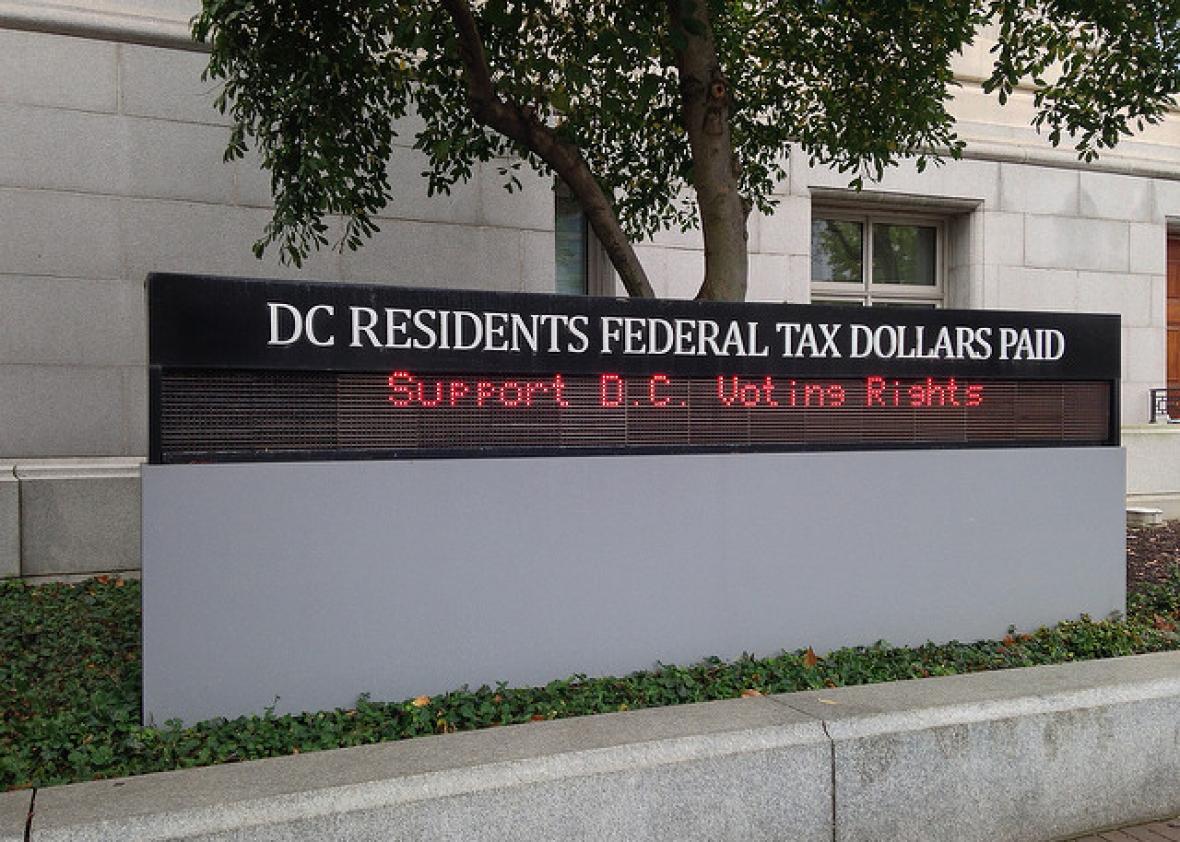At the rally that began the Women’s March on Washington earlier this month, Mayor Muriel Bowser gave a speech that culminated in a rallying cry on behalf of U.S. mayors and against the Trump administration: “Leave us alone!”
Bowser was echoing a recent, larger chorus of home rule from left-leaning politicians in cities and states. For Democrats of a certain age, accustomed to Washington’s role as the guarantor of civil rights, this might sound novel. In D.C., this has been a theme of local politics for 50 years, and continuing proof that the GOP shibboleth of “local control” is less philosophy and more a catchphrase that can be adopted or abandoned at will.
With Republicans in control of Congress and the presidency, the House Committee on Oversight and Government Reform has drafted a plan to make sure local D.C. laws are “in line with Congressional mandates and federal law.”
It’s true that the Constitution grants Congress broad authority over the District. But the passage of the Home Rule Act in 1973 devolved a number of powers to local government. Congress took control again in the 1990s, as the District flirted with bankruptcy during Marion Barry’s four terms as mayor, but the recent trend has been toward more autonomy—aided by both the district’s growing full-time population, budget surpluses, and the catalyst of the 2013 government shutdown, which eased the way toward more local budget control.
In 2016, District voters overwhelmingly approved a measure to advance the quest for statehood, an idea to which that Republicans have long objected. Now Congress will have its revenge.
The stated mission of the Oversight Committee is to investigate the discrepancy between D.C. and federal law, though if D.C. were in violation of federal law, that could be settled in court—not by Congress. More likely, says David Super, a law professor at Georgetown who works with the D.C. Fiscal Policy Institute, a group that researches budget and tax issues in the District, the move is a pretense to take back control.
What would that look like? It might mean loosening the District’s gun laws (proposed this month by Rep. David Schweikert), blocking public funds for abortion services in the District (passed by the House last week), or clamping down on the District’s lax marijuana laws (the subject of previous congressional action).
Republicans justify that kind of interference by citing their constitutional mandate. But they also argue that the District, a heavily Democratic enclave with a population greater than Wyoming or Vermont, is the responsibility of their own constituents.
Here’s how Rep. Mick Mulvaney, Trump’s chief for budget chief, put it last year: “This is the people’s city, and the people of South Carolina have almost as much vested here as the people who live here.” Almost.
